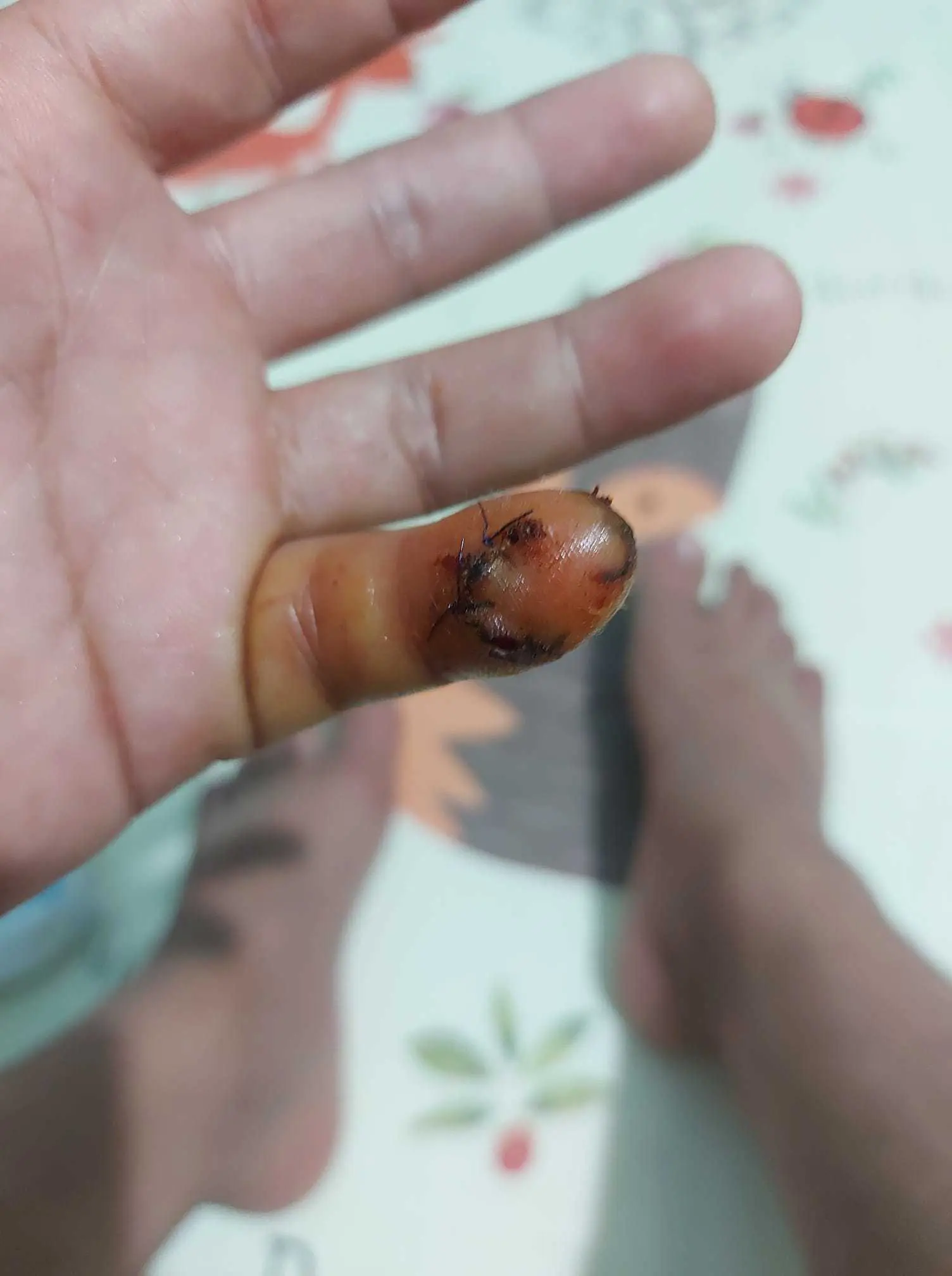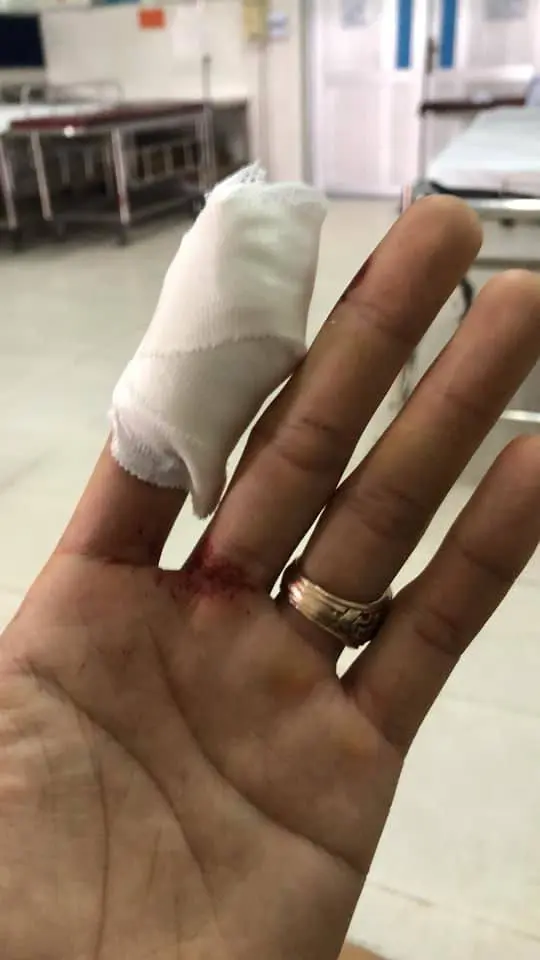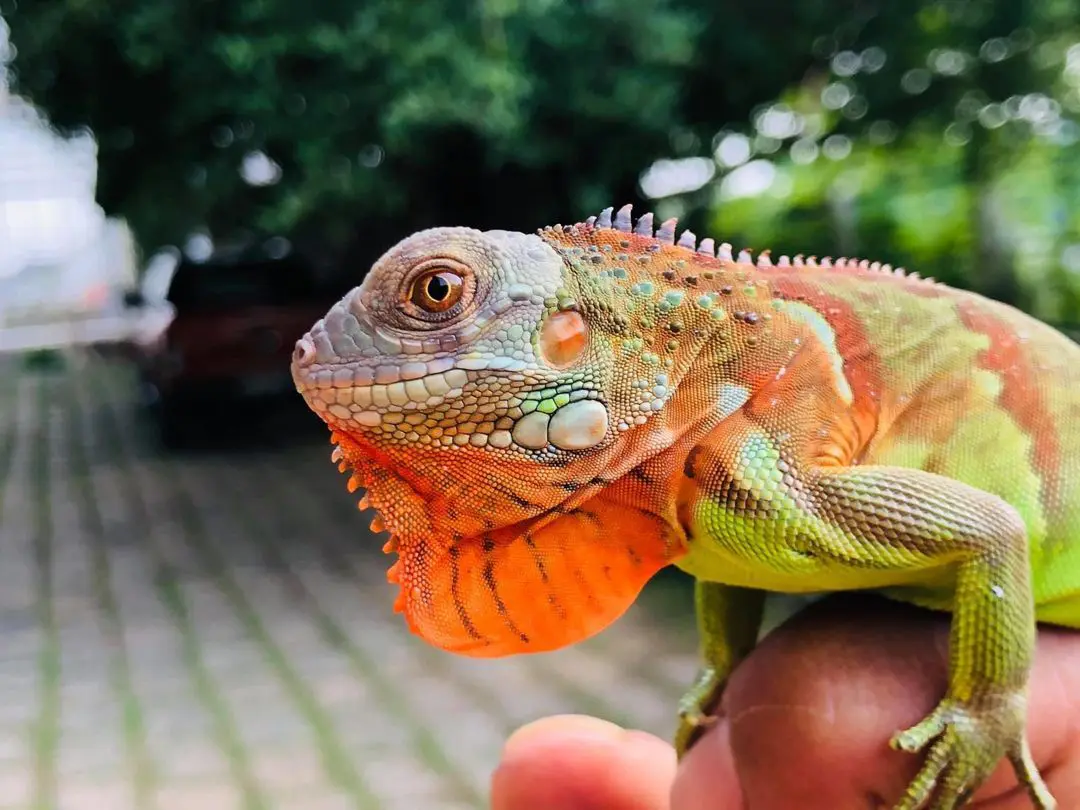Iguanas are found in Central and Southern America, along with the Caribbean. They live in the jungles and are beautiful and large reptiles, making very popular pets. These reptiles are also invasive to the United States.
Whether you have a new iguana in the home or you have found one in your yard, you are probably wondering about their bites, how to avoid being bitten and what to do if you are bitten.
It’s important to note that when you first bring an iguana home, it will be relatively harmless, but as it settles into its new home, it can become aggressive.
Do Iguanas Bite?
Yes, iguanas will bite, though relatively uncommon. They have exceptionally sharp teeth which are used to shred leaves.
The teeth are brad, flat, and shaped like a leak with serrated edged. The teeth are found on the inner sides of the jawbone, which is why they are not always easy to see, especially in juvenile iguanas. The teeth are able to cause serious cuts.

Are Iguana Bites Dangerous?

Bites from an aggressive iguana can cause serious injuries to the finger
An iguana bite is not poisonous or venomous, but it can do serious damage. Iguanas have atrophied venom glands that produce only a very weak and harmless venom. Their bites can cause serious injuries to the fingers, ankles, wrists, and face.
Iguanas are herbivorous. Their food source is plant-based. According to a study, herbivorous lizards must have high bite force comparing to carnivorous or omnivorous animals to process and digest plants.
There are several reports about iguanas attacking their owners.
The good news is that an iguana will give you a warning before it bites. This includes standing up on its legs and leaning forward while bobbing its head. This is a sign that it feels threatened.
Why Does An Iguana Bite?
There are numerous reasons why your iguana may bite you or why the iguana you find in your yard tries to bite you.
If it’s your pet, ensure you spend a lot of time with it, getting it used to be handled, while getting to know its body language.
An Accident
It’s not uncommon for accidental bites, especially if you hand feeding your iguana. This is not something to be overly concerned about.
Be careful when feeding by hand and if your pet accidentally bites, change to tongs to reduce the risk.

Be careful when hand feeding your iguana
Investigating
If your pet smells something new and unfamiliar on you, it may flick its tongue and give a gentle bite. This is not done with pressure, but more a test to see if the strange smell bites back.
Scared
If you are in the process of taming your iguana, then it may get stressed and scared from time to time. The most common reaction is to lash out with its tail and give you a low-pressure bite.
Again, this is not something to be overly concerned about, it should stop this once fully comfortable with you.
Territorial Aggression
Iguanas are very territorial reptiles and they must dominate, which is why it’s not recommended to have more than one iguana in your home.
When your iguana wants to dominate outside its habitat, you need to push it away and tell it off. Don’t allow your pet to sit on your head or jump at you. You need to make it clear from the start that you are the boss.
If your iguana starts showing territorial aggression from inside its own enclosure, then leave it alone and don’t handle until later.
If you need to remove it from the enclosure, then move quickly and directly without making eye contact. Never hesitate and never show fear.
Mating Season
Iguanas have a breeding season and it’s not uncommon your pet is going to try and mate with you. This means that a male iguana will take a bite as it would a female. While this is not a dangerous bite, an iguana may hold onto until he is finished.
Pushing him away will make him aggressive and encourage him to bite harder.
Ensure you have alcohol available and hold it under his nose to encourage your pet to let go.
Iguana Bite Treatment

Flush the bite with warm water and remove debris after being bitten
If you have just been bitten by your iguana or by one you tried to remove from your yard, you will want to flush it well with warm water. Use soap to remove debris.
Use Betadine on the bite and finish with antibacterial ointment. It’s recommended to keep it covered for around two to three days to reduce the risk of infection.
Clean the wound every day with warm water and finish with the antibacterial ointment and cover. This will help to heal the bite faster.
If you have a deep bite then it could be a problem. The most common causes of a deep bite are trying to pull yourself away from the iguana when it bites.
If your bite is deep, it’s best to seek medical treatment. The medical team will decide whether to stitch the wound or not, as stitching tends to increase the risk of infection.
Remember that reptiles carry negative bacteria in their mouths, which can impact antibiotic treatments. Antibiotics should be taken as prescribed, completing the full course.
How To Avoid Getting Bitten
In order to reduce the risk of being bitten, it’s advisable to keep your pet out of situations where it feels scared, stressed, and threatened.
An iguana bite is often the last resort, so it’s advisable to identify situations to determine which will make your pet feel threatened.
Knowing your iguana well can help you identify when your pet is stressed and likely to attack. Changes in posture, head bobbing and tail whipping are all signs of an unhappy iguana and an increased risk of being bitten.
Be Predictable
The first step to reducing the risk of a bite from an iguana is to remain predictable.
Always give a new pet a few weeks to settle into its home before you start trying to tame it. Set up a routine for cleaning, handling, and feeding. Your pet can get to know the routine quickly, helping it feel safe and secure.
Talk to Your Pet
Talking to your iguana as you go about your daily routine, helps your pet get to know your voice and get used to you being around.
Just spend time talking to and watching the iguana. Make sure you use its name, as they do recognize their name over time.
Be in Charge
As mentioned above, iguanas are territorial and like to dominate, so it’s important to reduce the risk of being bitten that you show you are in charge straight away.
Be firm, be persistent, and don’t cause unnecessary stress for your pet. If you pick your iguana up and it struggles and you immediately put it down, your pet has won. Remain firm and calm, never show you are nervous.
Handle With Care

Iguana handling
When you approach your pet and when you handle it, you should do so with care.
Place your hand in the enclosure and slowly approach your iguana. Never do this from above, always from the side. If you move your hand from above, your iguana will see it as a threat and may bite to protect itself.
Speak softly and reassuringly, don’t make any sudden movements, be slow and smooth.
Summary
It’s important when you come across an iguana, whether in the wild or at home, that it is a wild animal and can be territorial and even unpredictable at times.
Getting to know your pet well can help you quickly read its body language to identify if it feels scared or stressed.
Knowing your pet’s body language can help you ascertain when a bite may occur, helping you prevent the risk.
This really helps with my decision to get me an iguana I really hope the one I choose will be for me and my home